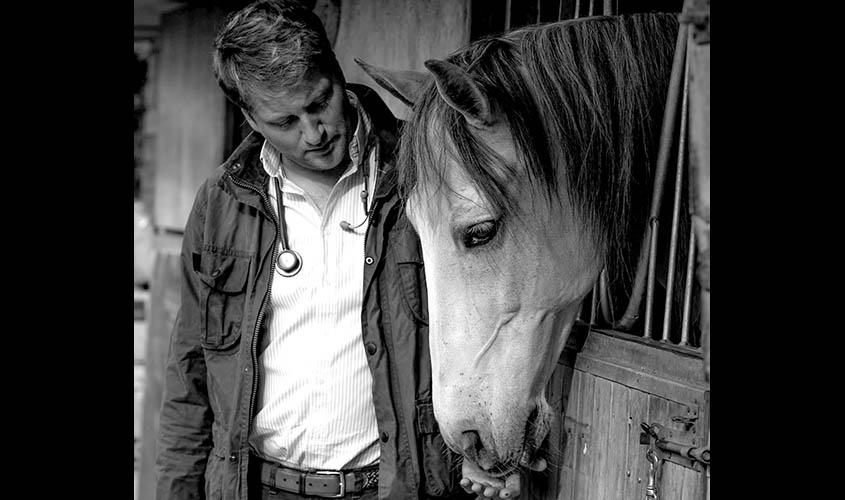Veterinary medicine is becoming more specialised says Dr Marvin Firth, who specialises in equine internal and reproductive medicine, sports medicine and incorporates chiropractic, acupuncture and laser therapy. Firth explains that with the advent of pet insurance pet owner’s expectations have risen, and the requirement for a bespoke service akin to private medical practice has never been greater. Firth has developed a London based consultancy practice for dogs and horses with access to an extensive referral network of international specialists in areas of surgery, medicine and behaviour. He believes that there is an increasing cross-over between human and animal medicine, complimenting veterinarian Dr John Glen for his discovery of the anaesthetic Propofol, recognised by the World Health Organisation as an essential medicine and used extensively, every day in human surgery.
Firth continues that vets have a deep background in the basic sciences which he emphasises can be used outside of the realms of general practice.Animal models have been developed to influence humans specifically with large pharmaceutical companies recognising the important skill set of many veterinary surgeons and scientists. Advances in joint/bone surgery, prosthetics and pharmaceuticals often have a background in advances made in veterinary research. Dr Firth is keen to highlight that roles utilising these core skills from a veterinary undergraduate training can be applied in many civil, industry or government roles, in research groups and in charity sectors.
Firth is the child of Naval medics who specialised in psychiatry and critical care. For him medicine was the obvious choice, however as a Royal Scholar and growing up in a rural community, he bucked the careers advice he was given to follow a vocation combining his love of the outdoors and animal science.Before his undergraduate training he researched disease spread by the Tsetse fly at a government laboratory in Kenya, following this he developed his equine integrated practical experience and learning in Belgium and the USA, working with polo, dressage, event, show-jumping and race horses,then following with further research in pregnancy development and loss in women and horses. These days he is frequently involved by other vets in reviewing an animal’s complicated history and imaging,having lengthy consultations with the animal’s owner in their homes or stables.
Firth comments veterinary practice is rarely the first choice amongst talented school leavers, a vet’s hours are long and the pay is usually less than a doctor’s, however it is important to recognise the ability to utilise skills gained in medicine, surgery, anaesthesia, imaging and to problem solve and deal with difficult situations. These skills make the training of a veterinary surgeon very desirable in many spheres. So what does it take to become a successful vet? Firth rates communication as a key skill, he believes it is important to keep good relations with an anxious client while a complaint is being diagnosed, which can sometimes take a while. Often animals play a vital role in the family or industry in which the owner is involved and it is important to provide the latest information and developments in veterinary medicine to improve both animal welfare and quality of service.
He is devoted to his work, he says, “It is great to have such an influence on the quality of life of an animal and see it either express more comfort, perform better or mobilise more appropriately. Having a close rapport with my clients means you almost become part of the family when an animal has a chronic condition which needs to be managed and that is a great privilege.”
Firth lectures at agricultural colleges on career pathways and aspects of equine science and in small animals, he is also involved in recruitment preparation for UK veterinary colleges;his work takes him all over the UK, Europe and on occasion to islands such as Mustique. He has recently been awarded the Best New Veterinary Practice 2018 and Most Outstanding Veterinary Service 2019.

